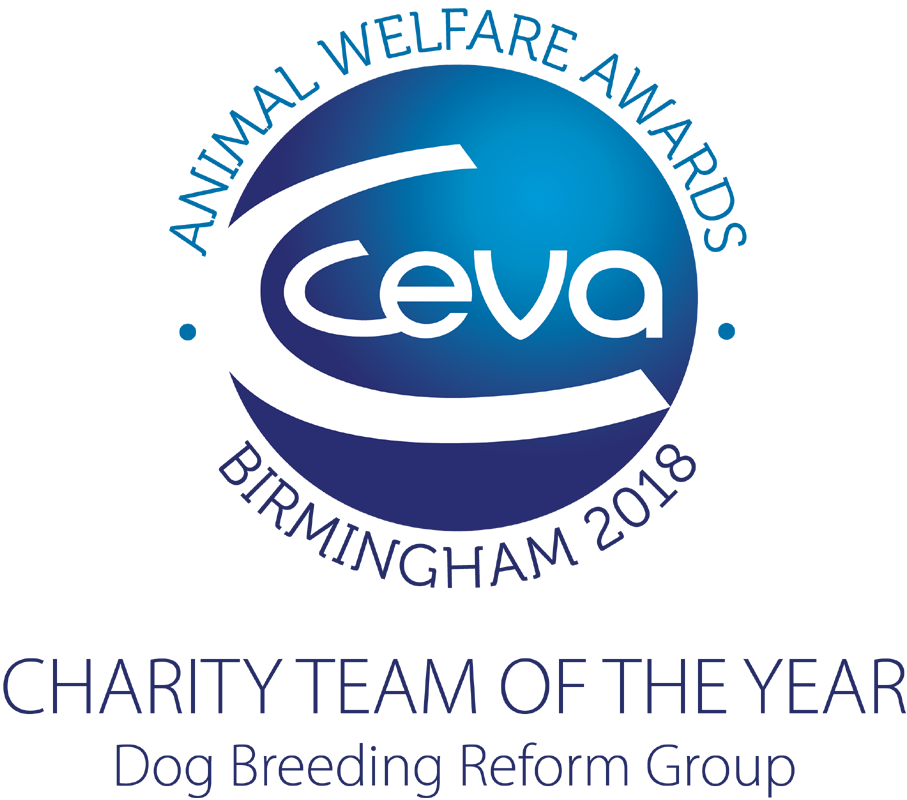Notes of Meeting March 3 2016
Present:
Dan O’Neill (DON), Sheila Crispin (SC), Chris Laurence (CL), Stephen Charlton (SC), Julia Charlton (JC), Julia Carr, Tania Ledger (TL), Margaret Carter (MC), Carol Fowler (CF), Charlotte Mackaness (CM), Natalie Plowman (NP), Vicki Betton (VB)
Apologies:
Marisa Heath, David Grimsell, Clare Rusbridge, Gudrun Ravetz
Dan O’Neill (DON), Sheila Crispin (SC), Chris Laurence (CL), Stephen Charlton (SC), Julia Charlton (JC), Julia Carr, Tania Ledger (TL), Margaret Carter (MC), Carol Fowler (CF), Charlotte Mackaness (CM), Natalie Plowman (NP), Vicki Betton (VB)
Apologies:
Marisa Heath, David Grimsell, Clare Rusbridge, Gudrun Ravetz
1. Matters Arising
2. National Dog Breeding Inspection Scheme (JC)
The Scheme would draw on documents already available, such as the CIEH Model Conditions, DAC Breeding Standard, EMRA document (emotional and enrichment needs of dogs). There was an excellent response to the idea of a Standard for Breeding Dogs from members of the public at dog events last year. It is noted that other welfare groups are thinking along the same lines and there might be opportunities for collaboration. It was felt that UKAS accreditation was not necessary as the bar is set too low. The purpose of such a scheme would be as a tool to guide the public in their choice of breeder and to reward the breeders with the highest standards. The Scheme could include a scale of competence and trained inspectors would be able to help breeders to improve. The Scheme could be reviewed and evolve over time as long as breeders were given ample notice that a review would be taking place. CL pointed out that the Standard must be specific (which the KC ABS is not). An easily recognisable symbol such as the Red Tractor could be used to help purchasers. A database of breeders would be kept and any negative feedback from members of the public would be investigated by the Scheme Inspectors. A breeder could also be supported if they felt an owner was unreasonable.
It was agreed that FC, DG, CL, JC would meet as a group to prepare outline proposals to be discussed at the next full meeting. LF offered to run the outline proposals past a group of breeders for their feedback. It should be offered to a group of dog owners/potential puppy purchasers as well. 3. DBRG New LeafletMuch work has gone into producing a second leaflet aimed at providing more information about DBRG and our aims/objectives. The general feeling was that the leaflet contained too much information, particularly the list of links on one page which should be removed. The importance of visual information was stressed as was the need to engage members of the public. Cute pictures of dogs/puppies will attract attention and be more likely to engage dog owners. LF questioned the purpose of leaflets when a website can contain all of the information. However, after discussion it was agreed that leaflets do serve a useful purpose particularly in face to face situations and we probably need several versions. TL pointed out that Cavalier Matters charity has produced many leaflets on specific aspects of Cavalier health and welfare, including advice for owners of dogs with breed-related problems. JC said that there had been a good reaction to the first DBRG leaflet at dog events around the country last year and that the pseudo quiz worked well. JC suggested that the leaflet does go to print and that we should consider a third. CF will work on further ‘trimming’ to make room for more illustrations before leaflet 2 is printed.
4. DogWellNet/International Partnership for Dogs (DON)
The Partnership was founded to support ‘co-operation, collaboration and sharing of information and resources across the global dog community to enhance the health, wellbeing and welfare of pedigree dogs and all dogs.’
IPFD and DogWellNet, created by Brenda Bonnet, are linked to the DogHealthWorkshop which is held bi-annually in Europe. The next is on April 2017 in Paris. We discussed whether DBRG should apply to join as a group and attend the next Dog Health Workshop. We agreed that it was important for us to be involved given our focus on dog breeding and breed related health issues. It would also be a way of representing dog owners at an event that was chiefly attended by kennel clubs’ representatives and scientists. We would welcome the opportunity to explain what DBRG was about and engage with the governing bodies of pedigree dogs. However, we agreed that as a new organisation we needed more time to agree on our policies and have position papers in place. We expect to be ready in 2019 and CF will write a formal response to Brenda Bonnet. |
5. Canine Action UK Update (Julia Carr)
Julia outlined her newly completed research, ‘Analysis of Licensed Pet Shops in Great Britain.’ This involved issuing Freedom of Information (FOI) requests in November 2015 to all 379 local authorities in England, Wales and Scotland, asking for information relating to pet shops that were licensed to sell puppies. There was a 99% response rate and for the first time there is data which gives a clear picture of what is going on. There are three types of premises which have pet shop licences: retail pet shops; dealers (who may be selling from domestic premises); hybrid sellers (these breed and sell their own puppies and puppies bred by other breeders). 60% of puppies sold are not from retail premises. There are inherent risks in selling dogs in this way: transport regulations are not enforced; it allows imported puppies to be sold; vet inspections are not carried out; 2013 Model Licence Conditions are ineffective or not used at all; enforcement issues are commonplace and prosecutions for poor animal welfare are rare; puppy buyers rarely complain to local councils; the Kennel Club continue to register puppies which are bred and sold in this way; the accountability of breeders relies on their own record keeping; ineptitude of inspections; no qualifications are needed to breed or sell dogs in this way. There is a lack of transparency and accountability.
SC suggested creating a website listing all pet shop licences and complaints received. However it is difficult to persuade local authorities to provide the information. In some ways local authorities are shielding these breeders and sellers. JC will check the legality of publishing a list of pet shop licences. VB commented that dogs are a high risk group but are given low priority. She suggested that other welfare groups would like to have this data. Julia is to be congratulated for the hundreds of hours of work that went into producing her report which will be immensely valuable to all those concerned with dog welfare. The Executive Summary of the Report is included as an Appendix to these Notes. 6. DEFRA Consultation on LicensingOur response is almost complete. We discussed the question of reducing the threshold for local authority licensing to above two litters. It was felt by the majority of the group that there shouldn’t be a threshold at all and that all breeders (even those who only breed one litter) should be registered with the local authority and provided with a registration number. We should make this clear in our response.
7. EFRA Inquiry on Animal WelfareOur response would need to be shared according to individual expertise and was now urgent. CF will complete the final document which will focus primarily on dog breeding issues.
8. Description of members for DBRG website
CF requested short biographies (100 words) from all members to be placed on the DBRG website. Biographies should be accompanied by a portrait photo.
9. Charitable status and fundraisingNatalie Plowman (founder of the Leeds University Animal Welfare Society) was welcomed as a new member and as our official fund raiser. Natalie will begin by writing to those animal welfare charities which help other, smaller charities to start up. Other fund raising ideas welcome. Note that we are able to adopt the title, ‘charitable trust’, even though we have not reached the minimum financial requirement of £5,000 for registration with the Charity Commission. Funding now stands at £365.50.
10. Press release/communication
A sample press release provided by CF was discussed briefly and rejected. We agreed that the purpose of such communication would be to raise our profile a little and respond to dog related events such as Crufts. CM and VB will work together in future to produce appropriate releases which balances our viewpoint with an awareness of the dog welfare political landscape.
11. Public Canine Events 2016Events, dates and venues will be sent to members when available.
|
Date of next meeting
Next meeting on 9 June 2016 at the British Veterinary Association
Notes compiled by CF
Notes compiled by CF
Appendix
ANALYSIS OF LICENSED PET SHOPS IN GREAT BRITAIN
|
Julia Carr March 2016
In November 2015, we issued Freedom of Information requests to all 379 Local Authorities in England, Wales and Scotland, asking for information relating to pet shops that were licensed to sell puppies. We have had a 99% response rate to our enquiry (three local authorities have not responded) and this has enabled us to build a very detailed picture of licensed third party puppy vending in Great Britain during the last three years. We wanted to primarily identify all premises selling puppies which hold pet shop licences and establish whether these were retail or non -retail premises. We also wanted to:
Executive Summary This Freedom of Information survey has revealed a detailed picture of the licensed third party trade of puppies in Great Britain. Key findings are:
Licensing is regarded as a tool to protect animal welfare and consumers by ensuring that basic minimum standards are complied with. However, our study has shown that it is ineffective on both counts. The regulation itself is inadequate, it also has tremendous variation in application and enforcement. There is almost no deterrent for non-compliance and once granted, a licence may even serve to protect the licensee. We do not believe that the licensing system as it currently functions is fit for purpose. Rather than amending the basic parameters, a radical rethink of the entire process is required towards a system which incentivises the highest standards and will ensure that puppies are bred and reared to meet the expectations of those purchasing them. Puppy buyers want to be able to confidently buy a puppy that has the best possible chance of being a happy and healthy companion. Businesses that sell puppies as family companions should have a legal duty to ensure as far as possible that the animals they are producing are fit for that purpose. Selling puppies through licensed pet shops cannot meet this objective, because selling puppies from premises other than where they were born has an inherently negative impact on their welfare that cannot be neutralised. |






